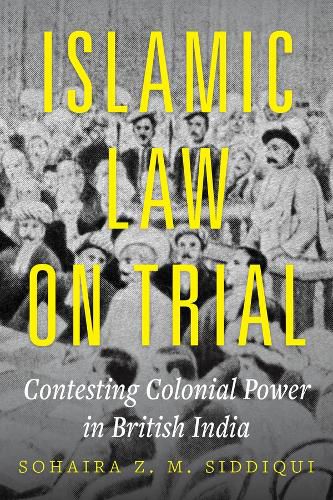Readings Newsletter
Become a Readings Member to make your shopping experience even easier.
Sign in or sign up for free!
You’re not far away from qualifying for FREE standard shipping within Australia
You’ve qualified for FREE standard shipping within Australia
The cart is loading…






Prior to the East India Company's establishment in India in 1661, Islamic law was widely applied by the Mughal Empire. But as the Company's power grew, it established a court system intended to limit Islamic law. Following the Great Rebellion of 1857, the decentralized Islamic legal system was replaced with a new standardized system. Islamic Law on Trial interrogates the project of juridical colonization and demonstrates that alongside-and despite-the violent displacement of Muslim legal sovereignty, Muslims were able to engage with and even champion Islamic law from inside the colonial judiciary. The outcome of their work was a paradoxical legal terrain that appeared legitimate to both Muslim practitioners and English colonizers. Sohaira Siddiqui challenges long-standing assumptions about Islamic law under British rule, the ways in which colonial power displaced preexisting traditions, and how local Muslim elites navigated the new institutions imposed upon them.
$9.00 standard shipping within Australia
FREE standard shipping within Australia for orders over $100.00
Express & International shipping calculated at checkout
Stock availability can be subject to change without notice. We recommend calling the shop or contacting our online team to check availability of low stock items. Please see our Shopping Online page for more details.
Prior to the East India Company's establishment in India in 1661, Islamic law was widely applied by the Mughal Empire. But as the Company's power grew, it established a court system intended to limit Islamic law. Following the Great Rebellion of 1857, the decentralized Islamic legal system was replaced with a new standardized system. Islamic Law on Trial interrogates the project of juridical colonization and demonstrates that alongside-and despite-the violent displacement of Muslim legal sovereignty, Muslims were able to engage with and even champion Islamic law from inside the colonial judiciary. The outcome of their work was a paradoxical legal terrain that appeared legitimate to both Muslim practitioners and English colonizers. Sohaira Siddiqui challenges long-standing assumptions about Islamic law under British rule, the ways in which colonial power displaced preexisting traditions, and how local Muslim elites navigated the new institutions imposed upon them.